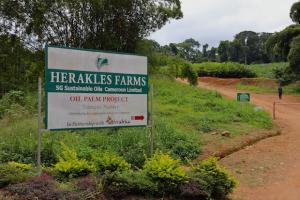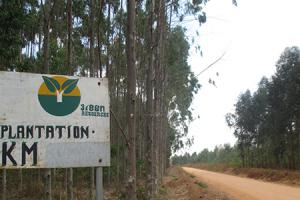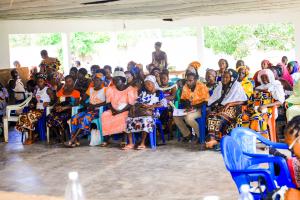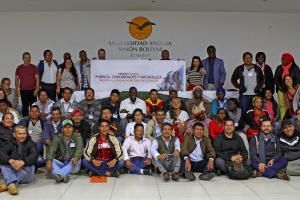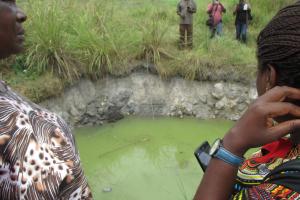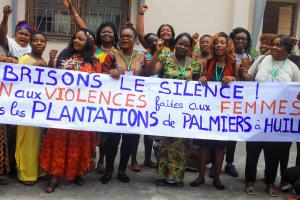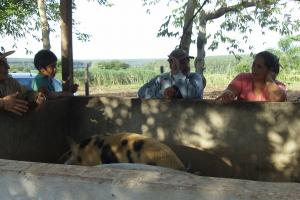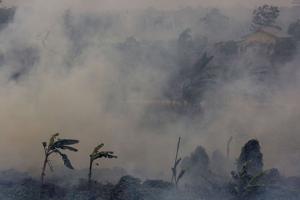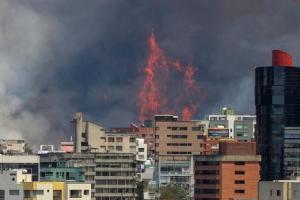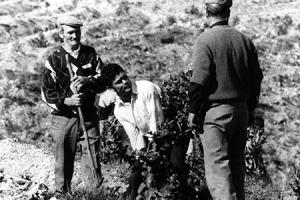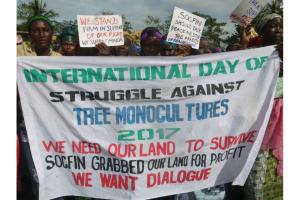Struggles Against Tree Monocultures
Corporate profit drives land grabs to install industrial tree monocultures. Where industrial plantations take root, communities' territories and lives are violently invaded, their forests destroyed and their water polluted. When communities resist, companies tend to respond with aggression. Despite this extreme violence, communities around the world are resisting, organizing and joining forces to defend their territories. Every September 21 the International Day of Struggle against Monoculture Tree Plantations is celebrated.
An interview with the activist Nasako Besingi. He organized communities in their protests against US agribusiness Herakles Farm’s palm oil plantations. Due to this engagement, he has been the victim of Herakles Farm and government physical attacks, intimidation and criminalization. (Available in Swahili).
At first glance, the Nzivi village is a village as many others in the area. But a big difference is that it does not allow investors for large-scale activities, such as monoculture tree plantations. Green Resources is the main private plantation company active in Tanzania. (Available in Swahili).
Dekel Oil’s false promises lure villagers into dangerous oil palm growing contracts in Cote d’Ivoire
Land owners in Cote d'Ivoire are trapped in contracts with Dekel Oil, a company that made false promises arguing villagers would become rich by signing contracts to let oil palm monocultures on their land.
In Ecuador, the expansion of industrial oil palm plantations is the main cause of deforestation. A meeting to exchange knowledge, the first of its kind in Ecuador, brought together leaders from oil palm-affected provinces from the three regions of the country.
The expansion of industrial oil palm plantations by OLAM hit the village of Sanga in the South of Gabon particularly hard: The community's main water source became so polluted that the water is now unsafe for drinking and not suitable for other daily uses.
On this September 21st, a message of solidarity and homage to the communities, community-based organisations and activists who are fighting in many different ways and places to stop monoculture tree plantations.
Over the last ten years, through organization and struggle, families in northeast Argentina have managed to recover land monopolized by multinational corporation Arauco. Now, they are growing food there.
Despite that most forest fires in Indonesia started within expanding oil palm plantation concession areas, companies are not being persecuted. (Available in Indonesian).
Since the native vegetation that surrounded Quito was destroyed to make way for eucalyptus and pine plantations, the forest fires that the city faces year after year have been intensifying.
In 1989, there was a war in the valley of Lila, Portugal. Hundreds of people gathered to destroy 200 hectares of eucalyptus, fearing that the trees would rob them of their water and bring fire.
